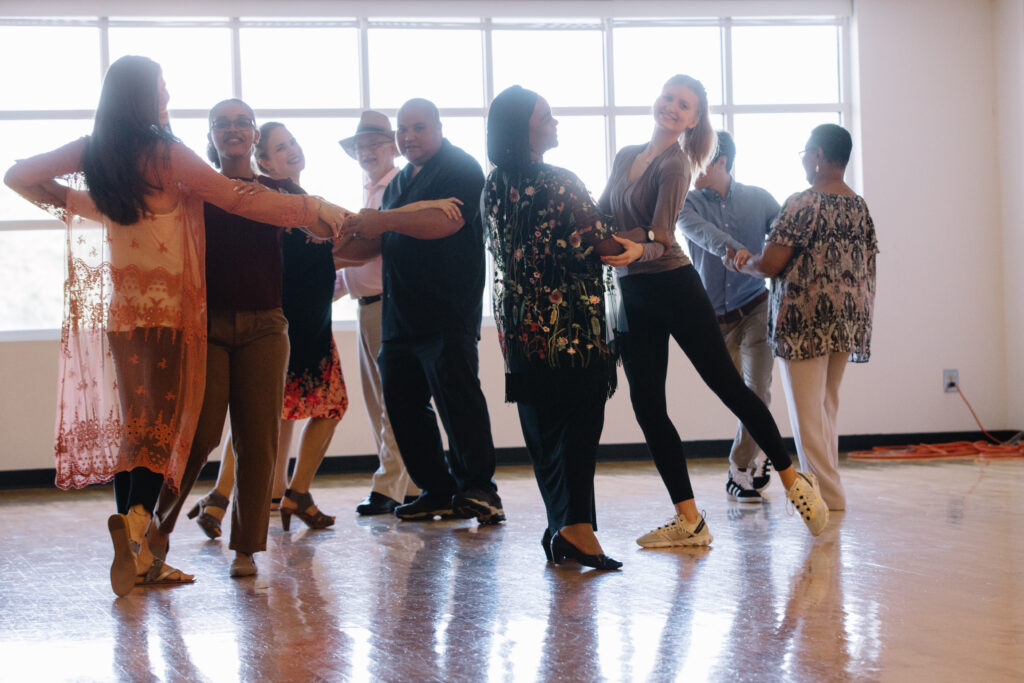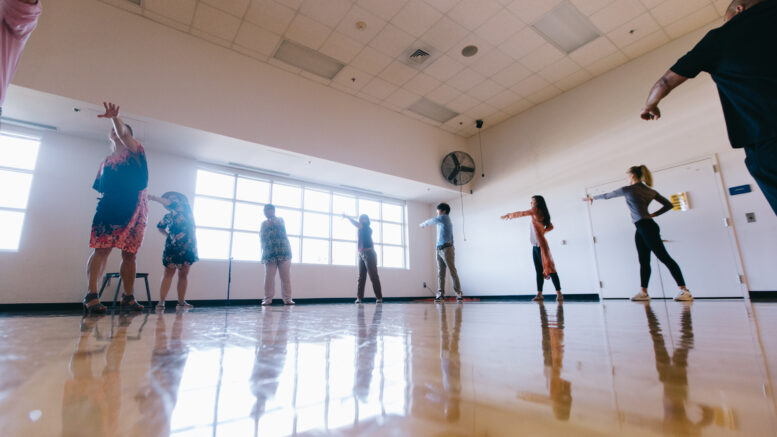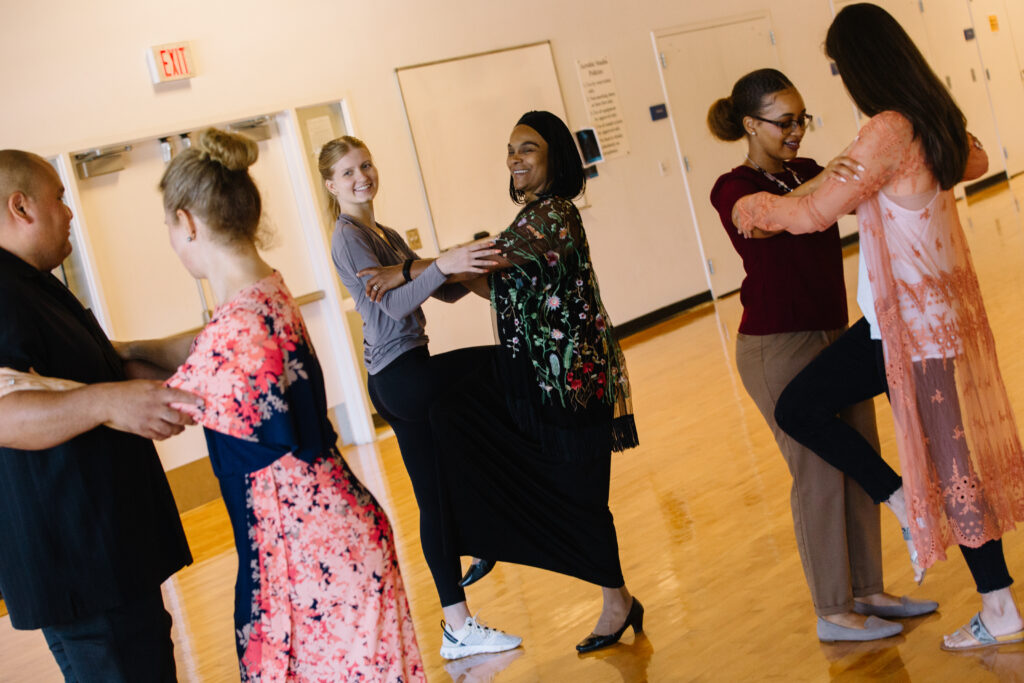The Division of Geriatrics and Gerontology is thrilled to announce that they will receive a Research Grants in the Arts award of $50,000 from the National Endowment for the Arts (NEA). This grant will support the project titled Community-based participatory evaluation studies on an Adaptango dance program for adults with Parkinson’s Disease (PD).
This program, led by Madeleine Hackney, PhD, Associate Professor of Medicine, in collaboration with Laura Emmery, PhD, Associate Professor of Music Theory at Emory’s College of Arts and Sciences, uses a modified traditional Argentine tango resulting in adapted tango (Adaptango), which accommodates movement needs of older adults with PD (PWP) or mild cognitive impairment (MCI). This program will study the creative process involved in Adaptango Performance Process(APP) in two phases: Feasibility and Efficacy, conducted over two years. Historically Adaptango programs have engaged university students who serve as dance partners for PWP.
In Phase I (Feasibility), 10 dyads consisting of an older (PWP) and younger (age 18-25 y) individuals will participate in a 3-month APP led by a trained instructor (Dr. Hackney and team), culminating in a weekend workshop of performances at the Science Gallery Atlanta(SGA). We will conduct interviews during, focus group, and use arts-based evaluation methods after the APP weekend workshop. We will use information gained to refine the conduct of Phase II (Efficacy), which will build upon lessons learned, to examine the effects of APP on the creative process, justice, community building between generations, and confidence in creative expression. Understanding the impact of the APP will lead to greater dissemination of this powerful approach to unpacking difficult-to-process topics, to greater empathy between generations, and to document community-building among this unique group of individuals assembled to make Art through creative movement, a.k.a, dance.
“Dance can be used for healing and for strengthening human connections — to build community. Through history and across cultures, dance has also played a role in promoting health. The 21st century has critical neurological problems to solve, e.g., Alzheimer’s disease, Parkinson’s disease (PD), among others. Dance is pleasurable and provides access to unique learning strategies that promote neuroplasticity—the brain’s ability to change because of experiences—to improve these conditions. This important funding will help us to understand the impact of the APP and will lead to greater dissemination of this powerful approach to unpacking difficult-to-process topics, to greater empathy between generations, and document community-building among this unique group of individuals assembled to make Art through creative movement, a.k.a, dance. ” -project PI Madeleine Hackney, PhD
For more information on other projects included in the NEA’s grant announcement, visit arts.gov/news. Visit arts.gov/impact/research to explore more of the NEA’s work in research and analysis, including the agency’s five-year research agenda; in-depth reports and analyses of research topics in the arts; collections of statistics, graphics, and summary results from data-mining about the arts; and more.





Be the first to comment on "Division of Geriatrics and Gerontology receives awards from the National Endowment for the Arts "